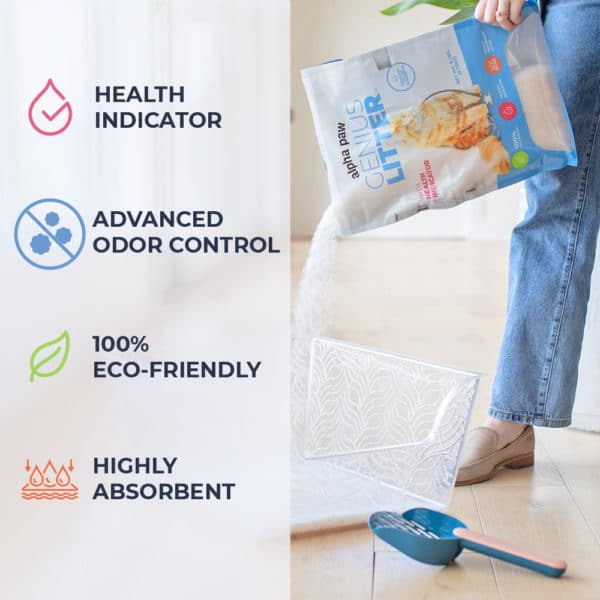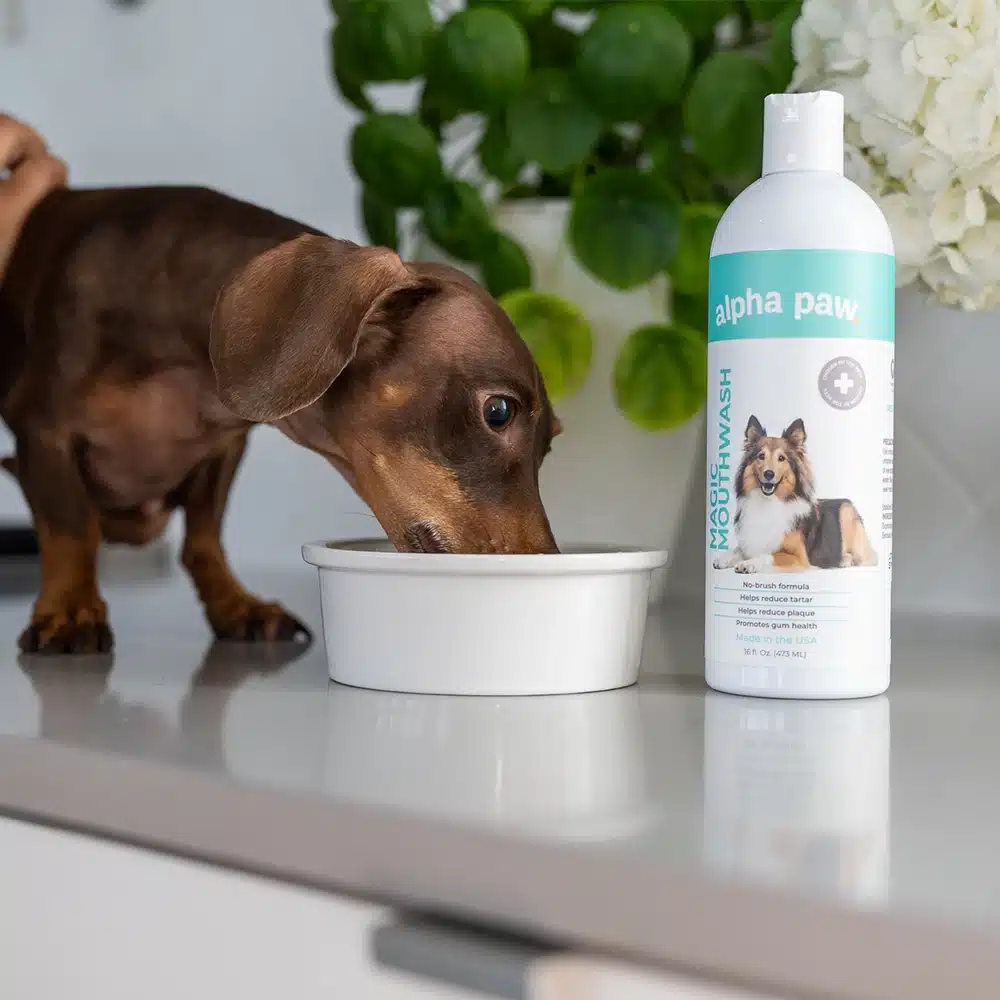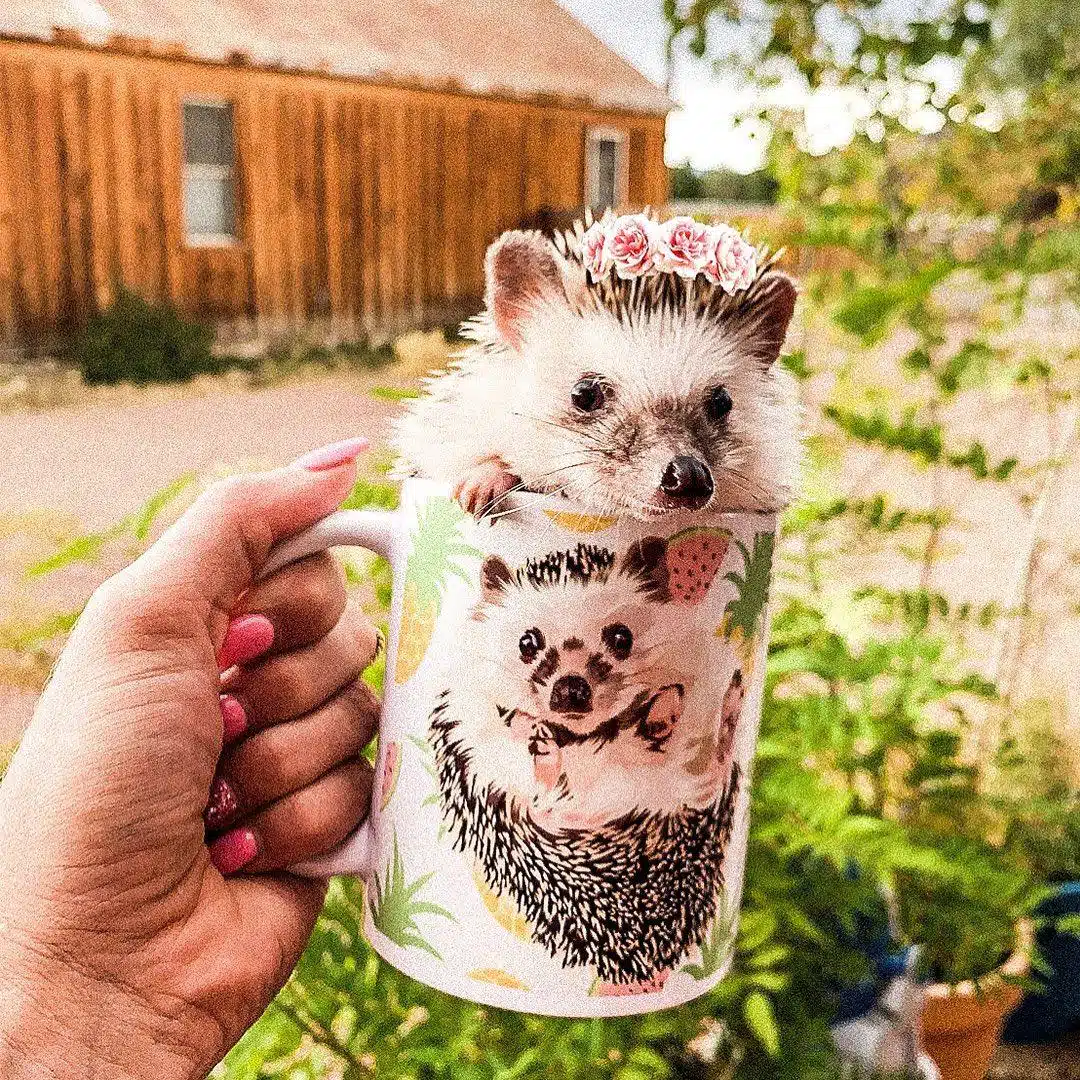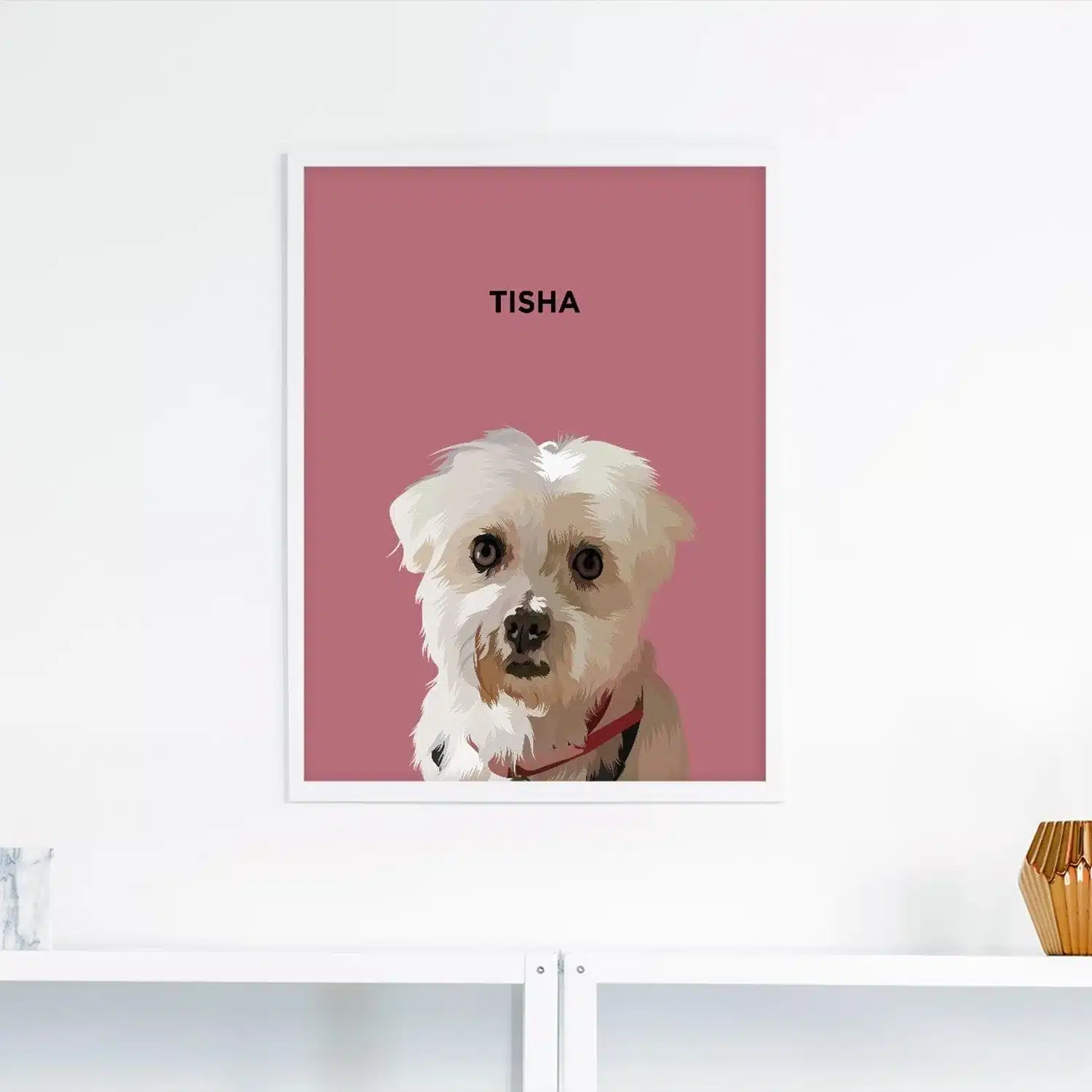It’s a well-known fact that cats are notoriously picky eaters, so pet parents often wonder! Can cats eat rice?
This may seem like an innocent question, but there’s more to the story when it comes to this particular food item, and it can be a bit tricky to get right.
Let’s talk about how much rice is too much rice, whether white rice or brown rice is better for cats, and most importantly—do cats need to consume food rich in nutrients like rice?
Now let’s dig deeper!
Can Cats Eat Rice?
Yes, cats can eat rice, but only in small amounts. In general, rice is considered non-toxic and won’t harm your cat if they have a bit in their food now and then. But it is not the ideal food for them to subsist on.
A healthy diet for a cat includes a complete and balanced food that contains protein, fat, carbohydrates, and all of the necessary nutrients to keep them healthy and happy.
Occasionally giving a bit of rice as a snack or treat won’t hurt, but too much can lead to certain health problems.
Rice is a Grain—Does Your Cat Need Grains?
A grain is a type of grass crop that produces seeds that can be harvested and eaten by humans or animals.
Cats are obligate carnivores, meaning that their diet must consist of at least 70% meat in order to fulfill their body requirements.
Cats do not need grains for growth because their meat-based diet provides them with what they need for development.
Rice is a grain so it falls under this category as well and cats can eat it in moderation if they are not allergic to grains. However, this is not necessary as their balanced diet already contains the necessary nutrition.
Are There Any Nutritional Benefits of Feeding Rice to a Cat?
The answer is that rice does not provide essential nutritional value for felines. The digestive system of cats differs from that of humans since they are obligate carnivores.
Humans get many benefits from plant-based protein but cats cannot process this and will not receive any nutritional value from eating rice or any other plant-based protein.
Furthermore, carbs, sugar, and fiber are not necessary for a cat to thrive and can lead to health problems such as diabetes or weight gain if too much is consumed.
If you have a cat, their diet must consist of meat-based foods with balance in the nutrients.
However, your cat can have rice in moderation as a snack occasionally since it will not have an adverse effect on them as long as it is not the only thing they are eating.
Is it Safe for Cats to Eat Different Kinds of Rice?
There is a wide variety of rice that can be consumed by a cat as long as it is plainly cooked. Some popular types of rice are:
- White Rice
- Brown Rice
- Fried Rice
White Rice
Cats can eat white rice. The germ, bran, and hull are removed from brown rice during processing to create white rice.
White rice has low nutritional value and should only be a small part of your cat’s diet.
While the occasional serving of white rice may not harm your cat, too much can lead to gastrointestinal problems.
Brown Rice
In small amounts, brown rice is okay, but it may not always be the best choice. Brown rice is harder for cats to digest, so make sure it’s cooked thoroughly to prevent choking and digestive issues.
Fried Rice
Fried rice contains onions, garlic, and other vegetables and spices which can be harmful to felines.
Plus, this dish has a high carbohydrate content which can cause weight gain and diarrhea. So it is important to avoid feeding them fried rice.
Do Cats Have Any Problems Eating Rice Products?
Certain rice products can be eaten by cats, but it depends on the product’s nutritional profile. Some contain ingredients that can harm cats, while others are perfectly safe.
- Rice Cakes
- Rice Pudding
- Rice Krispies
Rice Cakes
Yes, your cat can eat rice cakes. Rice cakes are made from rice and are a safe treat for your pet.
Just make sure to give them sparingly and not too often because rice cakes can contain salt or sugar which can upset your cat’s stomach.
Rice cake does not provide any nutritional benefit for your pet either so there is no need to feed them more than once in a blue moon.
Rice Pudding
When it comes to dessert, it may not be the best option for your furry companion. Rice pudding contains sugar, milk, and other ingredients which are not good for a cat’s health.
Remember that cats do not have the necessary enzymes to digest dairy products so rice pudding is likely to upset their stomachs and give them diarrhea or vomiting.
Rice Krispies
Despite the fact that rice krispies may seem harmless to give your cat, the truth is that the sweet treat contains sugar and artificial sweeteners that can cause health problems such as diabetes and obesity.
Can Kittens Eat Rice?
It’s always good to know what your kitten can and can’t have as far as solid food goes. Rice, for example, should be avoided at all costs with kittens.
Plant proteins are not able to provide them with the necessary nutrients so rice is an unhealthy choice for a kitten as it can lead to stunted growth and various developmental issues.
Kittens need to eat a diet that includes animal proteins in order to grow properly and healthily.
What is the Safest Way to Feed Rice to Your Cat?
Introducing new food to your pet can be a scary thing. If you’re not sure if your furry friend will like it.
Go slowly by mixing the new food into their old food gradually and increasing the proportion of new food over time.
Here are some tips for introducing rice to your cat:
- Be sure to cook the rice properly.
- Avoid using any additives or spices like salt, onions, and garlic when you cook rice.
- Give your cat a small amount of rice.
- You should only serve it once a week.
When it Comes to Eating Rice, How Much is Safe?
As a general rule of thumb, rice should be a rare treat for your cat and not a regular part of their diet.
Grains contain a high level of carbohydrates and can lead to health problems in your pet. That being said, it is okay to give your pet rice occasionally as a treat.
Just make sure that rice or grains don’t account for more than 25% of your pet’s daily diet and that meat products comprise more than 50% of their food intake.
If you do give them rice, limit it to once a week and never more than once per day.
When is Rice Bad for Cats?
Rice can be safe to eat in small amounts for most cats, but pet parents should be aware of the following exceptions:
Some cats may have allergies to new foods
Cats are carnivores so their stomachs cannot digest the carbohydrates found in grains like rice. Rice can also cause allergic reactions. They might vomit or have digestive issues if they are not used to eating grains.
Too much rice can be harmful
Feeding your cat too much rice can cause health problems. Too much of any food can be a problem, but when it comes to grains, they are more difficult for the body to digest than other foods.
This means that your cat will have a harder time breaking down the food and will end up with gas and diarrhea as a result.
Uncooked rice should never be given to cats
Uncooked rice is difficult to digest and contains a natural pesticide called lectin, which causes vomiting and diarrhea.
Uncooked rice can also cause:
- Abdominal pain
- Bloating
- Gas
- Upset stomach
It’s important to only give your cat plain cooked rice
Adding spices, salt, onions, garlic, and other additives to rice can be toxic to cats. Garlic or onion powders may cause anemia in your cat because they reduce the amount of vitamin B12 in the body. So, avoid giving your cat any type of rice that has been spiced or flavored.
Cats can become obese due to the carbohydrates in rice
Rice and other grains contain carbs that can lead to obesity if eaten in large amounts. Keep in mind that too much of anything won’t make for a healthy kitty so don’t go overboard with the treats either.
Overfeeding of rice can lead to malnutrition in kittens
Since cats are carnivores, rice does not provide enough nutrition for them. Consuming too much rice might lead to malnourishment.
Plus, rice can make a cat’s stomach feel full and it may not be able to absorb nutrients from other food.
Does Cat Food Contain Rice?
Dry cat food contains carbohydrates, so companies often use rice as a carbohydrate source in their formulas to give the dry food more nutrition and a better taste for your cat. Different forms of rice can be found in some types of cat food.
The percentage of rice can vary from product to product, but most dry foods contain some form of rice because it helps balance out the flavors in the dry food formula and it can be a good carbohydrate source for pets.
Safe Fruits and Vegetables for Cats
Although cats require a lot of protein in their diets, they can also consume small amounts of fruit and vegetables, such as:
- Cantaloupe
- Pumpkin
- Bananas
- Apples
- Spinach
- Strawberries
- Carrots
Healthy Protein Snacks for a Cat
The nutritional benefits of protein snacks, like cooked chicken or tuna mixed with their favorite wet food, will provide your cat with the nutrition he or she needs without the sweetness of human treats.
You have many different options for a protein snack, for example:
- Chicken
- Lean beef
- Shrimps and prawns
- Sardines
- Lamb
- Cooked eggs
- Salmon
- Mackerel
- Tuna
Key Takeaways
- A small, occasional treat of rice is fine for cats, but it should not be fed regularly.
- You should only give your cat plain cooked rice and not spiced or flavored rice.
- Cats who are overweight should avoid eating rice due to its high carbohydrate content.
- It is possible for your feline friend to develop several health problems if he/she consumes too much rice.
- Always consult with a vet before introducing any new food into your pet’s diet because some foods may cause stomach issues or allergic reactions.
Importance of Pet Insurance
Pet insurance is a great way to protect your animal’s health. It can be hard to predict when an accident will happen, but with pet insurance, you’re covered.
There are a few different types of plans depending on your needs, and it only takes minutes to get coverage for your pet.
Some pet insurance companies will even cover 100% of veterinary expenses. So make sure to choose the best pet insurance plan for your furry friend.
Once you have a plan in place, vet bills will never be too high because they’ll already be covered by the policy.
It’s important that we all take care of our animals’ safety and well-being so they can enjoy their lives just as much as we do ours.
What Makes Genius Litter Different from Ordinary Litter?
Say goodbye to hauling heavy bags and hello to easy Genius Litter.
With our innovative non-clumping litter formula, you’ll need less of it. One bag of our disposable Genius Litter lasts up to a month, so you won’t need to refill the box as often and can save money on monthly costs.
One thing that separates us from traditional litter is that Genius Litter changes color to indicate when your cat has a potential health issue, so you can get them help before it becomes an urgent medical situation.
All you need to do is set up a delivery date with us each month, and rest easy knowing that Genius Litter will arrive at your doorstep every 30 days.
For a convenient solution for your cat, try Genius Litter today!
Why is Lysine so Important for Your Pet?
Protect your pet’s immunity!
Have you noticed that your cat is coughing, sneezing, and having rapid breathing? Or maybe he/she has been scratching more than usual?
These are all signs of a weakened immune system. One way to prevent this from happening is by using lysine supplements.
Lysine plays a key role in your pet’s immunity because it helps to regulate the immune system.
Without enough lysine, your pets will be more susceptible to illness because their immune system can’t fight off infections as efficiently.
When they are sick, they will also be less able to absorb nutrients and make use of other supplements that can help them feel better.
Give your pet the support they need. Our Lysine supplement provides essential amino acids to help support a strong immune system.
Order now to get 300 one-scoop servings or 150 two-scoop servings and don’t worry about expiry!
















